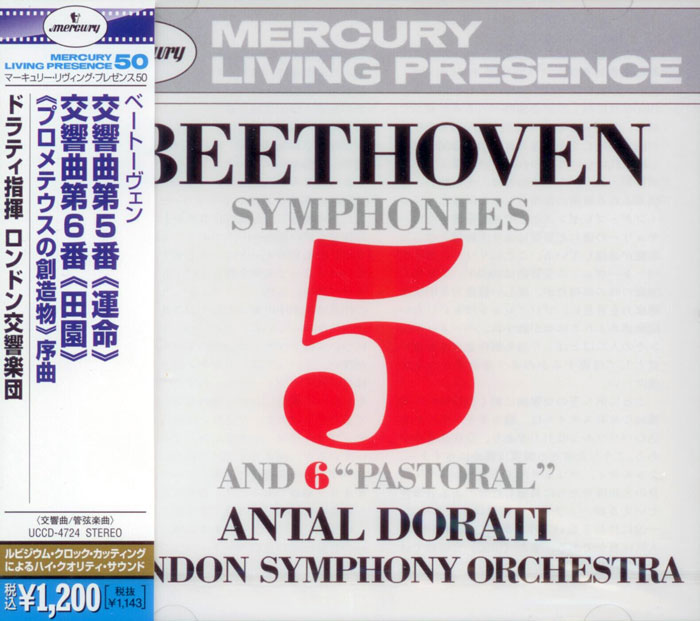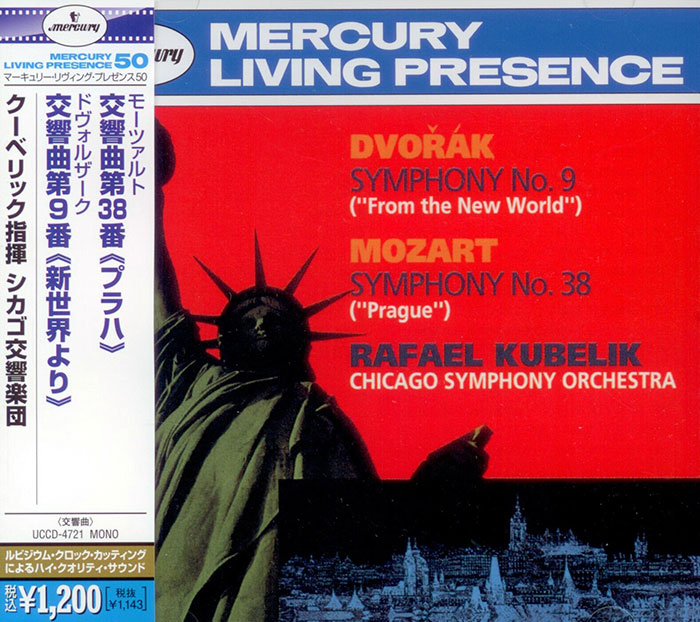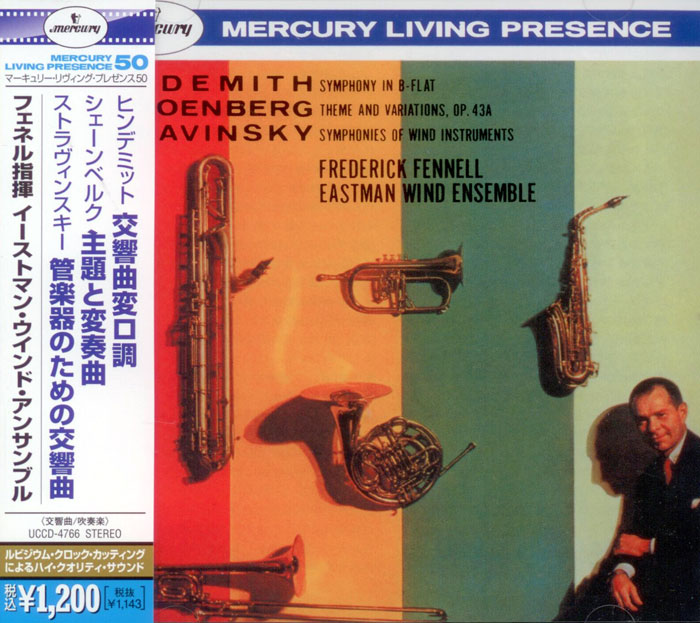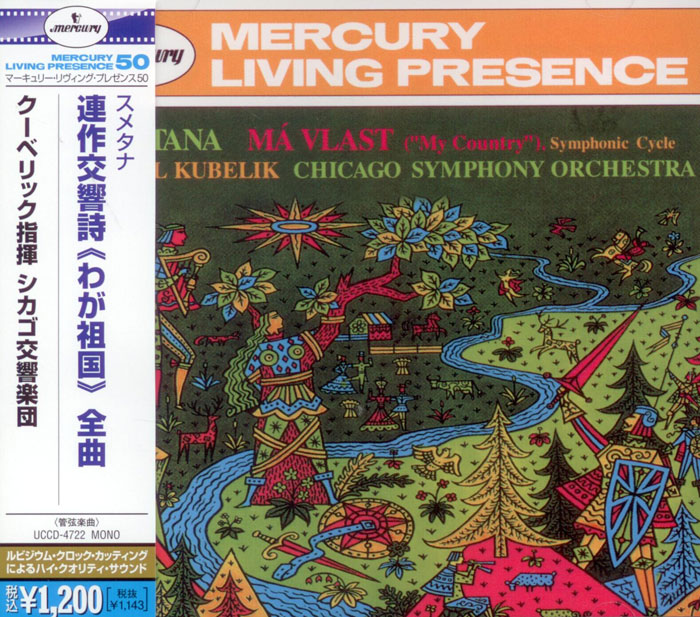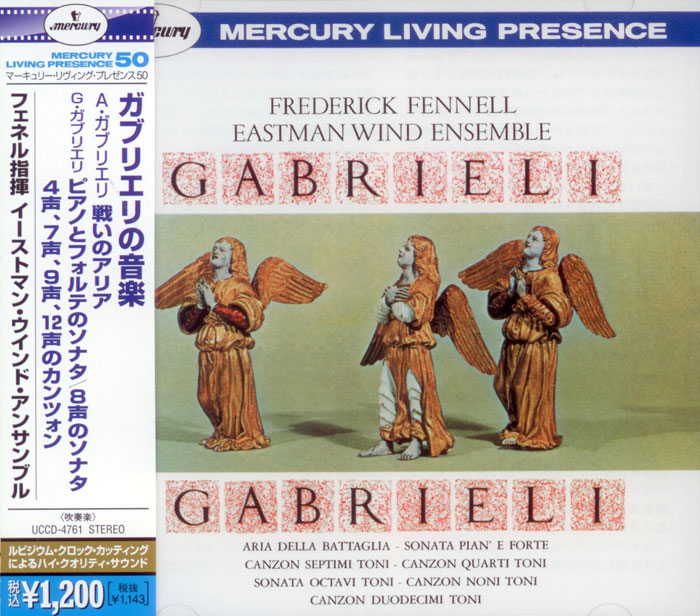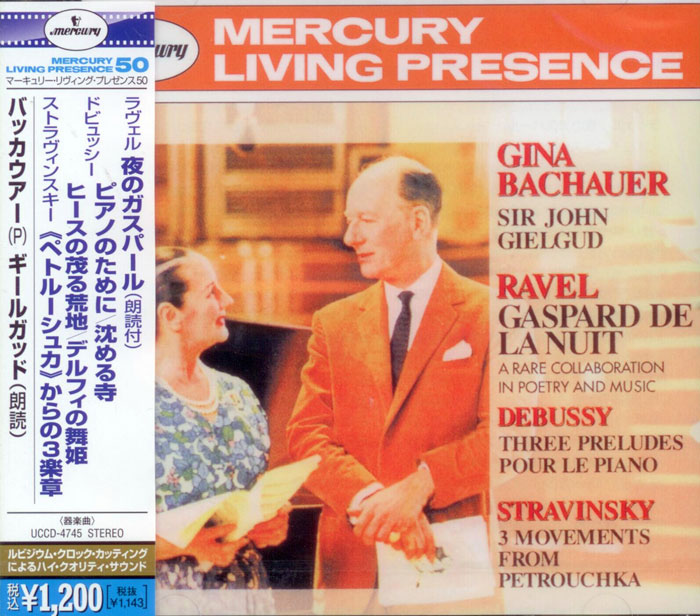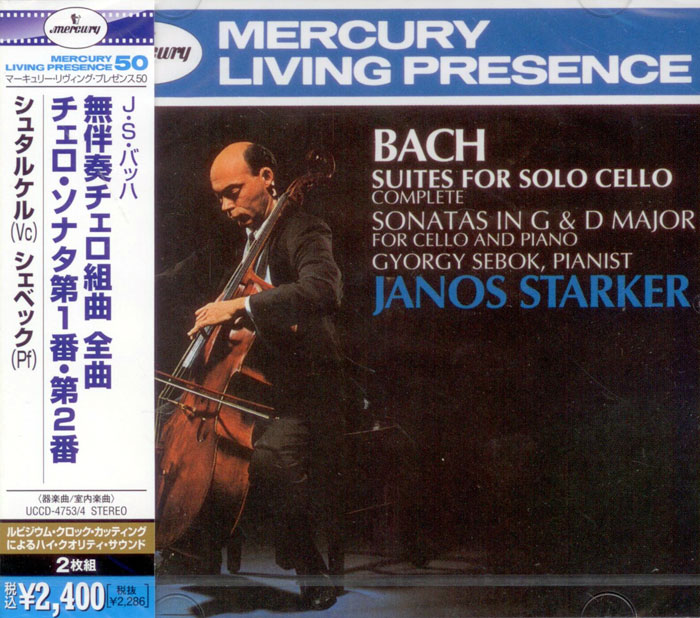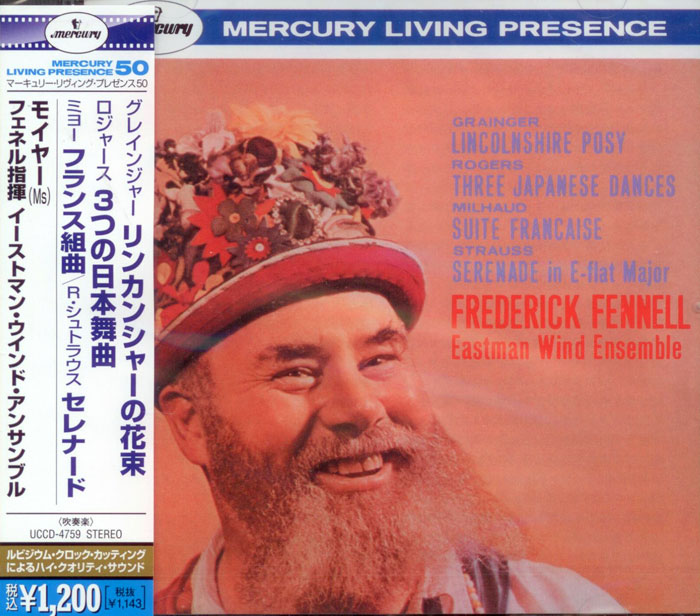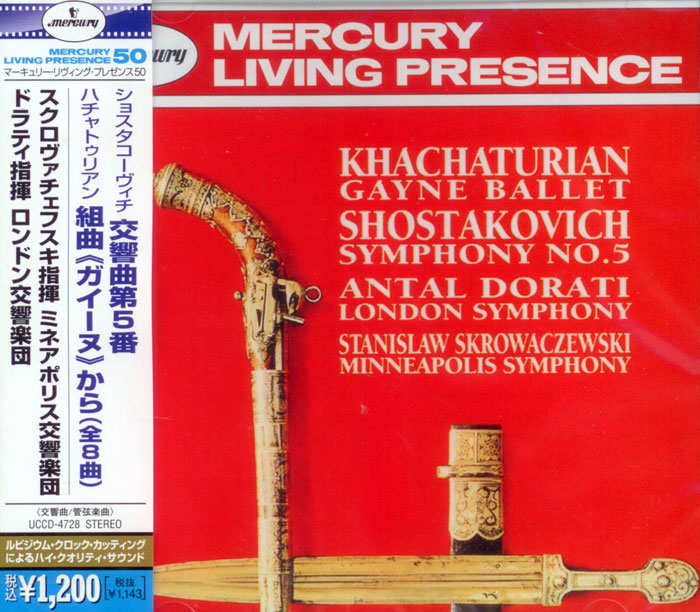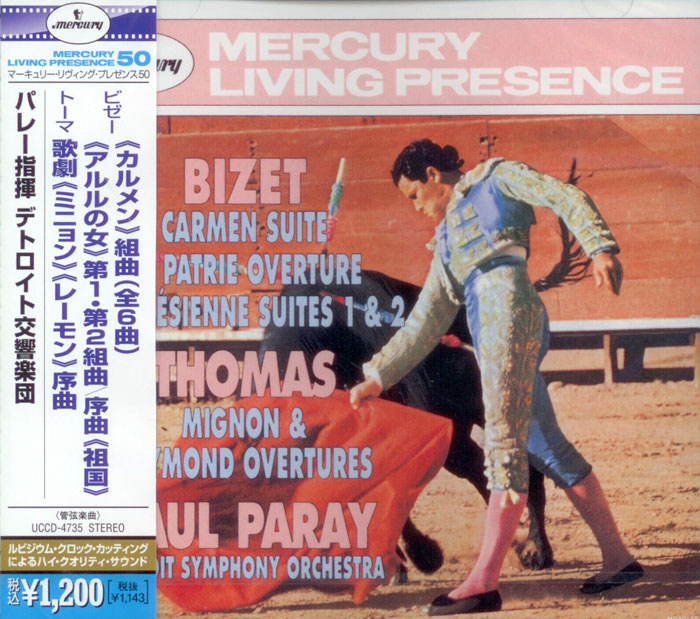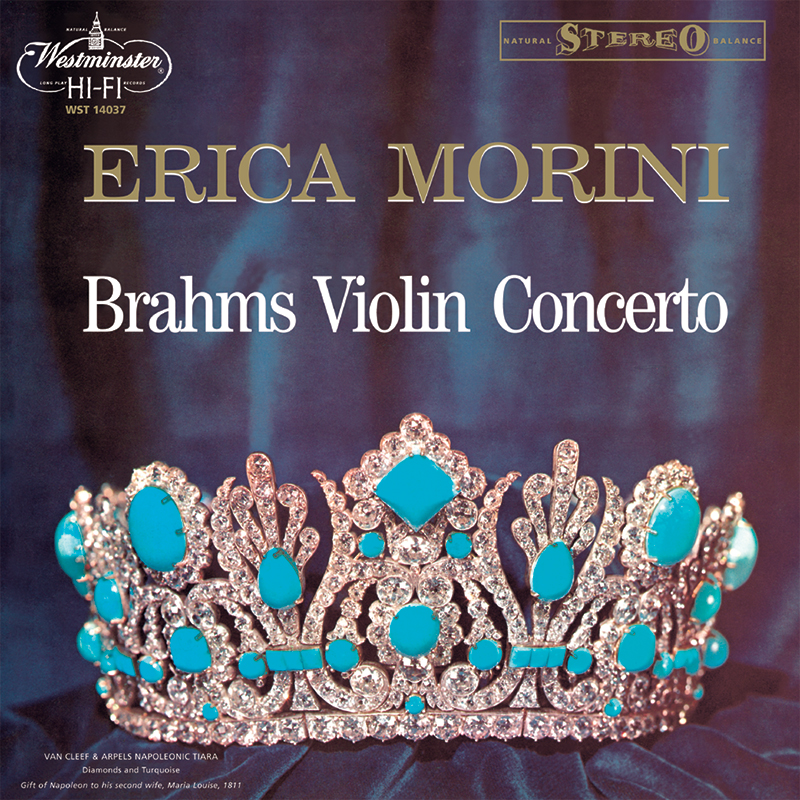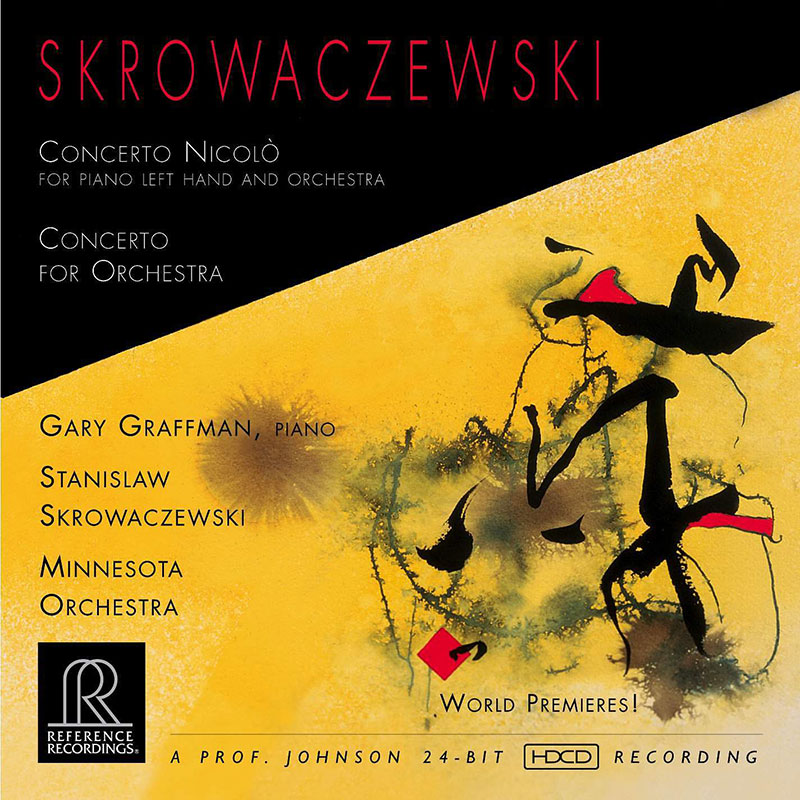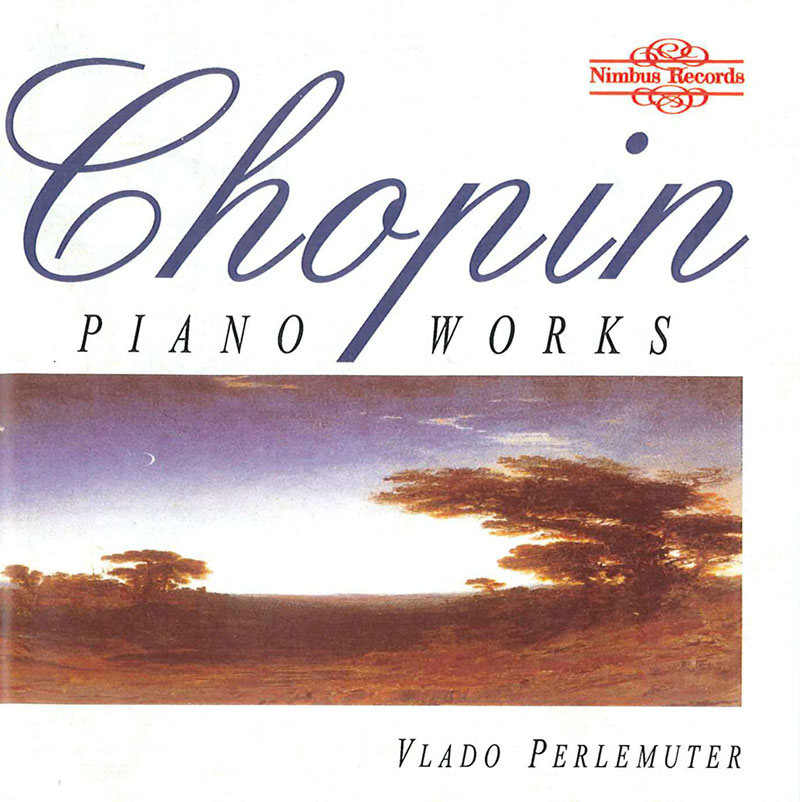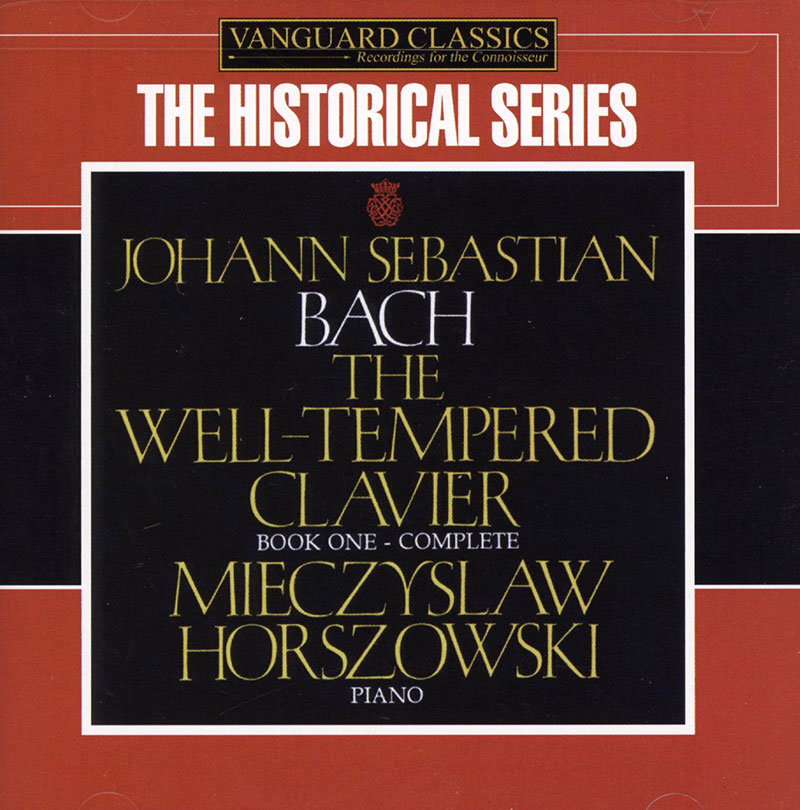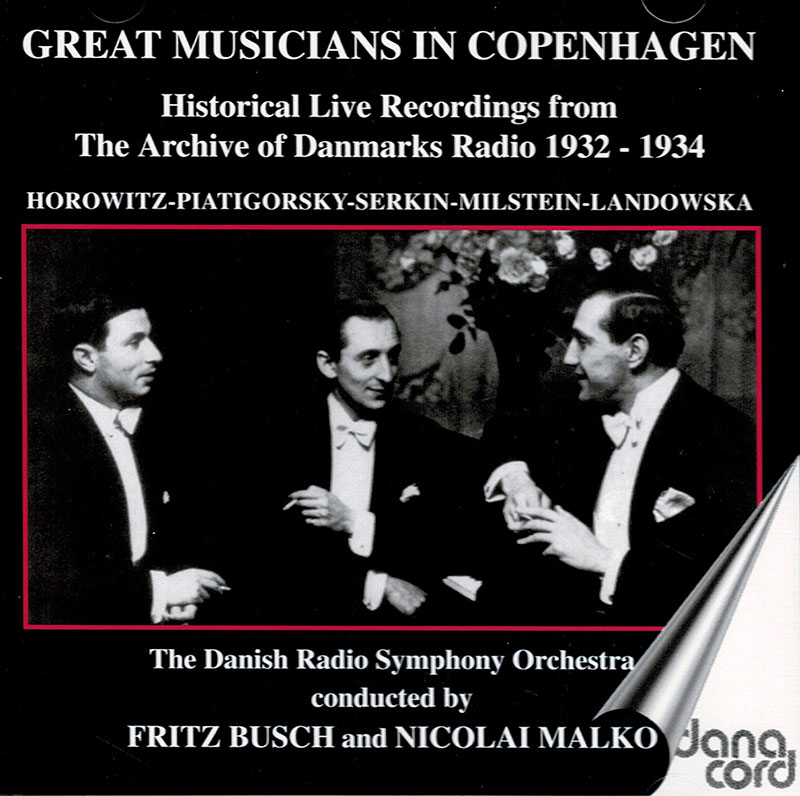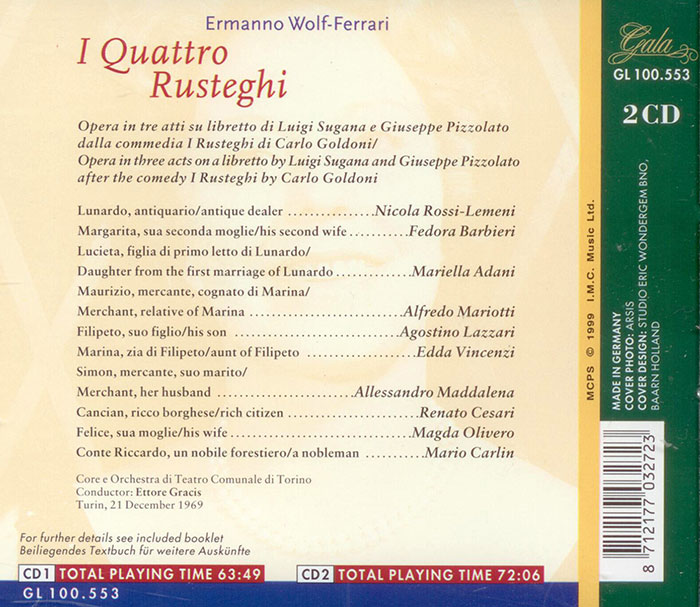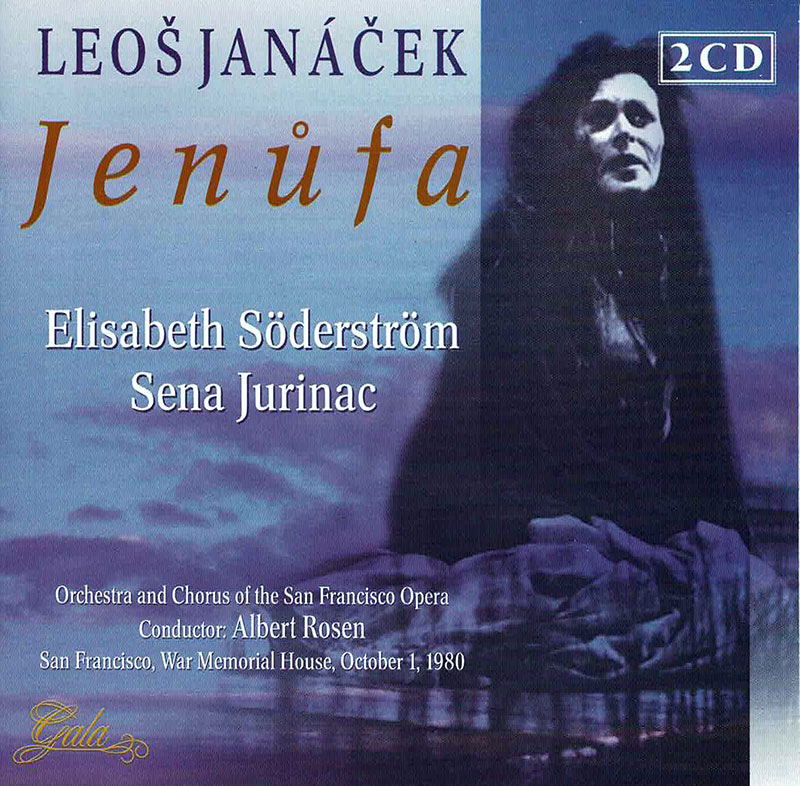Logowanie
Dlaczego wszystkjie inne nie brzmią tak jak te?
Chai Lang, Fan Tao, Broadcasting Chinese Orchestra
Illusive Butterfly
Butterly - motyl - to sekret i tajemnica muzyki chińskiej.
Brzmią jak sen na jawie
KHACHATURIAN, SHOSTAKOVICH, Antal Dorati, Stanislaw Skrowaczewski, The London Symphony Orchestra
Gayne / Symphony No. 5 in D minor, Op. 47
Stanisław Skrowaczewski,
Winylowy niezbędnik
ClearAudio
Cartridge Alignment Gauge - uniwersalny przyrząd do ustawiania geometrii wkładki i ramienia
Jedyny na rynku, tak wszechstronny i właściwy do każdego typu gramofonu!
ClearAudio
Harmo-nicer - nie tylko mata gramofonowa
Najlepsze rozwiązania leżą tuż obok
IDEALNA MATA ANTYPOŚLIZGOWA I ANTYWIBRACYJNA.
Osobowości
SKROWACZEWSKI, Stanislaw Skrowaczewski, Minnesota Orchestra
Concerto Nicolo for piano left hand and orchestra
WORLD PREMIERE!
WOLF-FERRARI, Magda Olivero, Nicola Rossi-Lemeni, Fedora Barbieri, Coro e Orchestra di Teatro Comunale di Torino, Ettore Gracis
I Quattro Rusteghi
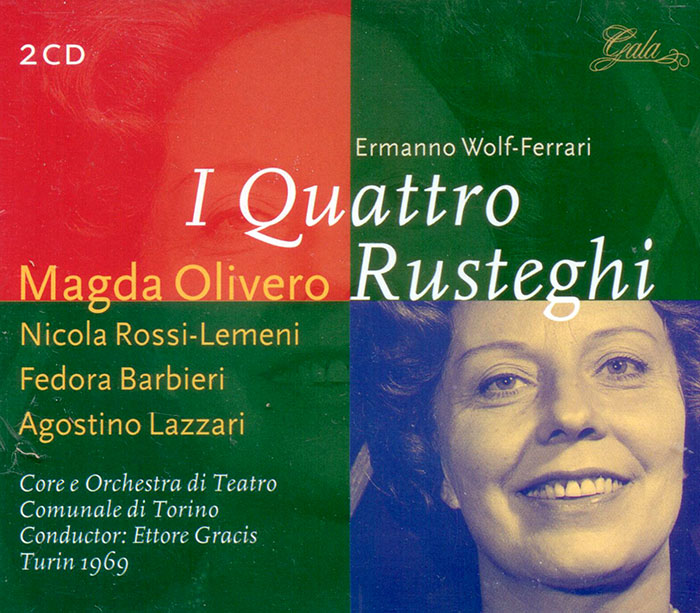
- Magda Olivero - soprano
- Nicola Rossi-Lemeni - bass
- Fedora Barbieri - alto
- Coro e Orchestra di Teatro Comunale di Torino - orchestra
- Ettore Gracis - conductor
- WOLF-FERRARI
Nicholas A. Deutsch 4.0 out of 5 stars Charming Opera, Fine Cast, Fair Sound, No Text April 17, 2002 The comic operas of Ermanno Wolf-Ferrari (1876-1948) possess a unique charm, especially those based - like this one - on the Venetian plays by the 18th century dramatist Carlo Goldoni. "I Quat(t)ro Rusteghi" (1906) translates roughly as "The 4 Curmudgeons" & is generally considered his masterpiece in this genre. The slender plot of Venetian middle-class life concerns 2 old-fashioned fathers who pre-arrange a marriage for their respective son & daughter; the wives contrive to set up a secret meeting between the young pair so they can find out if they like each other. The libretto is cleverly shaped so Wolf-Ferrari has maximum opportunity for a variety of solos & (particularly) ensembles. Verdi's "Falstaff" stands in the background, as indeed does the whole tradition of Italian opera buffa; the German side of the composer's heritage also plays its part - there are moments that suggest an Italian Humperdinck - & comes amusingly to the fore when a couple of the pompous husbands start sounding suspiciously like 1st cousins to Wagner's Mastersingers. There's a particular combination of elegance & wistfulness in the best of Wolf-Ferrari's music that gives it a special flavor. Furthermore, he had a natural flair for the stage & for comedy in particular. "I Quatro Rusteghi" is a piece full of warmth & good humor & well worth getting to know. There are now 3 recordings of the opera available on CD, all of them good, but varying a lot in sound quality. My personal favorite is the 1953 (radio) studio version (now at budget price on Warner Fonit 8573874812), to my ears a still unsurpassed combination of singing, acting, well-balanced mono sound & splendid conducting by Alfredo Simonetto. In a strong cast - Carlo Ulvi's out-of-tune Simon is the only really weak link - Fernando Corena (Lunardo) is a standout in every way & Agnese Dubbini's over-the-top Margarita a special delight. This is the only version to come with a complete Italian libretto, as well as a (very general) English synopsis. The other 2 are live recordings of stage performances. First, from the Teatro La Fenice in Venice in 1967 (Mondo Musica MFOH 10701): lively, well-sung - Ugo Benelli (Filipeto) exceptional - occasionally untidy musically (under Bruno Boga), in broadcast-quality stereo (with the unfortunate exception of the 2 extended instrumental pieces in Act I, which sound dim & muddy, & are marred by backstage noise), with lots of laughter from the audience; detailed English synopsis, no libretto. Finally, this 1969 version from Turin, which shares 3 singers with the Venice version - Edda Vincenzi (Marina), Alessandro Maddalena (Simon/Cancian) & the excellent Alfredo Mariotti (Maurizio/Simon); tenor Mario Carlin, Filipeto (the "juvenile") in '53, now sings the "character role" of Count Riccardo. Ettore Gracis leads a well-paced & -played reading, in tolerable if somewhat muffled mono sound - the balance suggests that it was recorded in the theater, not from a broadcast. Interest naturally focuses on 3 legendary names: soprano Magda Olivero (Felice), mezzo Fedora Barbieri (Margarita) & bass Nicola Rossi-Lemeni (Lunardo). Barbieri, rock-solid vocally, is not surprisingly an assertive & funny presence. Olivero is always elegant, refined & musically scrupulous; it's good to have a memento of her work in comedy from this great tragedienne of the lyric stage, tho' the role hardly makes use of her deepest dramatic gifts. Rossi-Lemeni, somewhat past his prime, is short of voice on the bottom, no match for Corena's supreme interpretation. The audience, like the performance, warms up as the opera progresses. No synopsis or libretto.






